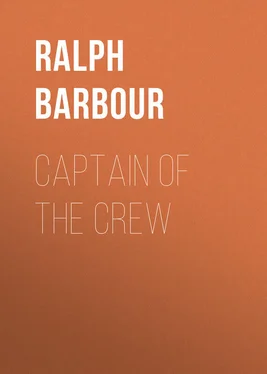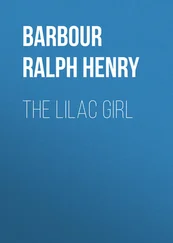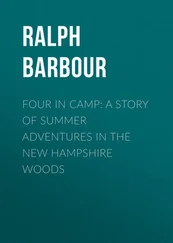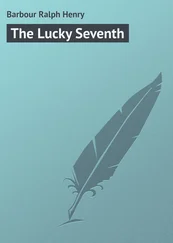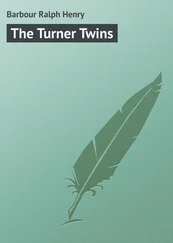Ralph Barbour - Captain of the Crew
Здесь есть возможность читать онлайн «Ralph Barbour - Captain of the Crew» — ознакомительный отрывок электронной книги совершенно бесплатно, а после прочтения отрывка купить полную версию. В некоторых случаях можно слушать аудио, скачать через торрент в формате fb2 и присутствует краткое содержание. ISBN: , Жанр: foreign_prose, foreign_children, на английском языке. Описание произведения, (предисловие) а так же отзывы посетителей доступны на портале библиотеки ЛибКат.
- Название:Captain of the Crew
- Автор:
- Жанр:
- Год:неизвестен
- ISBN:http://www.gutenberg.org/ebooks/48745
- Рейтинг книги:3 / 5. Голосов: 1
-
Избранное:Добавить в избранное
- Отзывы:
-
Ваша оценка:
- 60
- 1
- 2
- 3
- 4
- 5
Captain of the Crew: краткое содержание, описание и аннотация
Предлагаем к чтению аннотацию, описание, краткое содержание или предисловие (зависит от того, что написал сам автор книги «Captain of the Crew»). Если вы не нашли необходимую информацию о книге — напишите в комментариях, мы постараемся отыскать её.
Captain of the Crew — читать онлайн ознакомительный отрывок
Ниже представлен текст книги, разбитый по страницам. Система сохранения места последней прочитанной страницы, позволяет с удобством читать онлайн бесплатно книгу «Captain of the Crew», без необходимости каждый раз заново искать на чём Вы остановились. Поставьте закладку, и сможете в любой момент перейти на страницу, на которой закончили чтение.
Интервал:
Закладка:
“Don’t you worry, Joe, I’ll not hurt them. But we can’t put on side, old chap, unless we just touch them up a bit.”
Crack went the long lash again.
For several years the grays had traveled the road from station to school and thence to the Eagle Tavern without other persuasion than a cheery chirp or a sharp whistle from “Old Joe,” or, upon rare occasions, a half-hearted snap of the whip in no startling proximity to their ears. To-day there was plainly something wrong, and so, after a moment of bewildered consideration, they broke into a long ungainly gallop, to the joy of the boy with the reins and to the terror of “Old Joe.”
“By Jove, Williams, this is something like, eh?” Nesbitt sat up straight on the seat, tightened the lines and grinned delightedly at his companion. “Old Joe” was pleading excitedly for the whip.
“Please, sir, give me the whip now. I’m afeared for you to have it. You might hit ’em, sir, accidental, an’ there’s no telling what they’d do. Mister Williams, sir, just you hand it to me. Stop him! ” But he had spoken too late. Nesbitt brought the lash down smartly on the broad back of the off horse, and the gallop changed to a plunging run, the coach swaying awkwardly from side to side. “Old Joe” reached forward desperately to wrest the lines from the boy, but Williams interfered.
“Hands off, Joe,” cried Nesbitt, “or you’ll have us over. Keep him quiet, Williams.”
From inside the stage came a babel of shouts, the exclamations of alarm half drowned by the noise of the beating hoofs and the protesting creaks of the leather springs. The horses with heads down, frightened at length by the unwonted use of the whip, galloped madly. Nesbitt, smiling and cool, sat straight and handled the lines with skill, which at any other time would have won loud commendation from “Old Joe.” But just at present that worthy was too terrorized to appreciate aught but the fact that the grays were apparently running away. He had a frightful vision of an overturned coach, of mangled bodies, and of everlasting disgrace. Yet he recognized the fact that to take the lines away from Nesbitt by force, even had such a thing been possible, would be the surest way to bring about the very catastrophe he dreaded. And then he glanced ahead down the frozen road and saw the sharp turn but a short distance away.
The three youths on the seat behind had been watching affairs at first with amusement and now with apprehension. The boy in the center frowned and turned to one of his companions.
“Who is that chap?” he asked in a low voice.
“What! don’t you know ‘’Is ’Ighness’?”
“‘His Highness’? No, I don’t. Who is he; one of our class?”
“No; he’s an upper middle chap; Trevor Nesbitt’s his real name. The fellows call him ‘’Is ’Ighness’ because he’s English. He’s a good sort, all right, but I wish he’d let driving alone.”
“So do I,” responded the boy at the other end of the seat, “but” – a note of admiration creeping into his dubious tones – “he knows how, all right!”
“But, I say, Hope,” cried the previous speaker, “look there; we’ve got to go around that corner! Let’s say our prayers.” Hope’s brows contracted as he glanced ahead; then he slid from the seat, rested himself on his knee, clinging tightly the while, and leaned over the back of the seat ahead.
“Look here, can you get them around that turn?”
“Who’s that, Williams?” asked Nesbitt without looking around.
“Dick Hope; he wants to know – ”
“Tell him to shut up and sit down, Williams,” interrupted Nesbitt calmly. Hope flushed angrily, but said no more, crouching in his place between the seats with an idea of lending a hand in case of disaster, although in just what way he could be of use was far from clear. Nesbitt raised to his feet, propping himself firmly, the reins tight wrapped about his hands.
“Hold tight all,” he warned, “and bear to the right!”
With the turn but a few yards away he brought his weight to bear on the lines, swaying from side to side with the lurching coach, settling farther and farther back as the horses lowered their heads to the command of the tugging bits. Hope thought of “Old Joe” at that moment, and glanced across at him. The stage-driver was silent now, his cheeks white, his face drawn. Williams, too, was pale, and his rigid attitude told more plainly than words that the fun had ceased for him. Nesbitt alone of the three occupants of the box appeared at ease. Hope could see the warm color playing on his cheek, and —
“Easy, boys, easy!” Nesbitt called slowly, soothingly to the horses, and then – Well, Hope was clutching desperately at the boards in the grating; he saw the backs of the straining animals turn at an angle to the stage, heard the great wheels slur-r-r across the frozen ground, felt the body of the coach sway far to the left, as though it were on its way across the fence at that side, and opened his eyes again to find a straight road ahead of them, and to see Nesbitt settle himself into his seat once more. “Old Joe” muttered an exclamation of relief. Hope again leaned across Nesbitt’s shoulder.
“I think you’ve shown off enough for to-day,” he said. “Now pull those horses down – if you can.”
Nesbitt glanced back into the other’s face, an angry light in his blue eyes.
“Will you kindly attend to your own affairs?” he asked with suspicious sweetness. Hope smiled in spite of his anger.
“If you don’t think it’s my affair,” he replied, “maybe you’ll acknowledge that the gentlemen ahead have something to say about it.” Nesbitt looked up the road and whistled.
“Just my bally luck!” he murmured. “Professors!” With straining arms he bore back on the lines. Little by little the horses slackened speed, and at last dropped into a trot, but not before the coach had swept by two very serious-faced Hillton professors out for a walk, whose sharp glances presaged trouble. Nesbitt handed over the lines and whip to “Old Joe.”
“My luck again,” he sighed.
“An’ serves you right,” grunted the driver.
Hope crawled into his seat again. His companions were busy explaining the course of events to the inhabitants of the interior of the coach, or as many of them as could get their heads out the doors, and ere the latter had run out of questions the stage turned into the academy grounds and crawled sedately up to the steps of Academy Building.
Hope leaped from the coach and hurried off to his room, while the other boys, laughing and joking, clustered about Nesbitt. “Wheels won’t do a thing to you,” one lad assured him with a grin.
“Well, don’t let it trouble you, Tommy,” he answered gaily. “But, I say, Williams, who was that meddlesome chap on the back seat?”
It was Williams’s turn to grin.
“The fellow you told to shut up, you mean?” Nesbitt nodded.
“Oh, no one much; just Dick Hope, captain of the crew.”
CHAPTER II
INTRODUCING DICK HOPE
The sun was almost out of sight as Dick Hope crossed the yard toward Masters Hall, and the shadows of the buildings, stretching far over the ground, seemed to harbor many little gusts of icy wind, and looked dark and dismal in contrast with the broad expanse of golden, sun-bathed marsh across the river. Dick pulled his coat closer about him, ran up the old, worn granite steps of the dormitory, and gained the hallway with a sense of comfort and homecoming.
Securing his key from the matron’s room, he leaped up the first flight of narrow stairs and, half-way down the corridor, unlocked a dingy door which bore a big black figure 16, and, below it, a card with the inscription “Richard Fowler Hope.” The room was filled with the mellow light of the setting sun, and here and there the rays were caught – by the glass doors of the bookcase, by the metal top of the inkstand, or, less sharply, by the silver and pewter mugs ranged along the mantel – and were thrown back in golden blurs that dazzled the eyes.
Читать дальшеИнтервал:
Закладка:
Похожие книги на «Captain of the Crew»
Представляем Вашему вниманию похожие книги на «Captain of the Crew» списком для выбора. Мы отобрали схожую по названию и смыслу литературу в надежде предоставить читателям больше вариантов отыскать новые, интересные, ещё непрочитанные произведения.
Обсуждение, отзывы о книге «Captain of the Crew» и просто собственные мнения читателей. Оставьте ваши комментарии, напишите, что Вы думаете о произведении, его смысле или главных героях. Укажите что конкретно понравилось, а что нет, и почему Вы так считаете.
